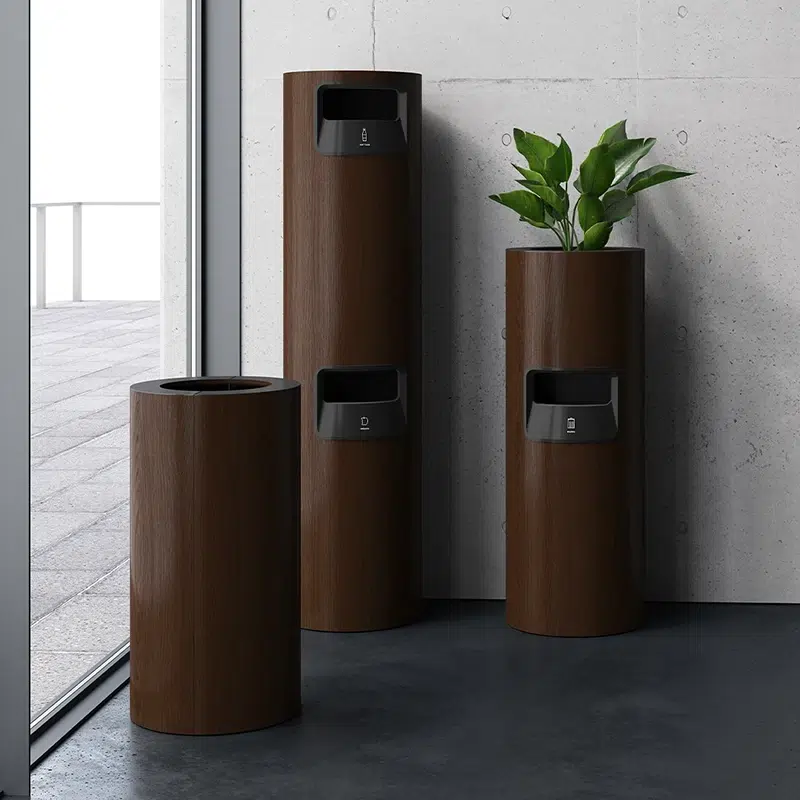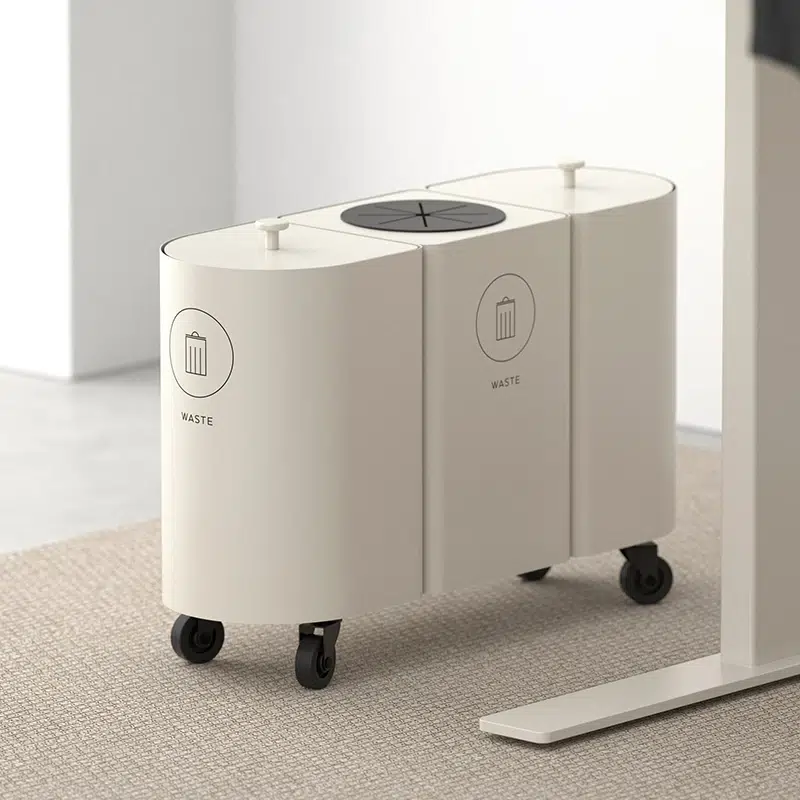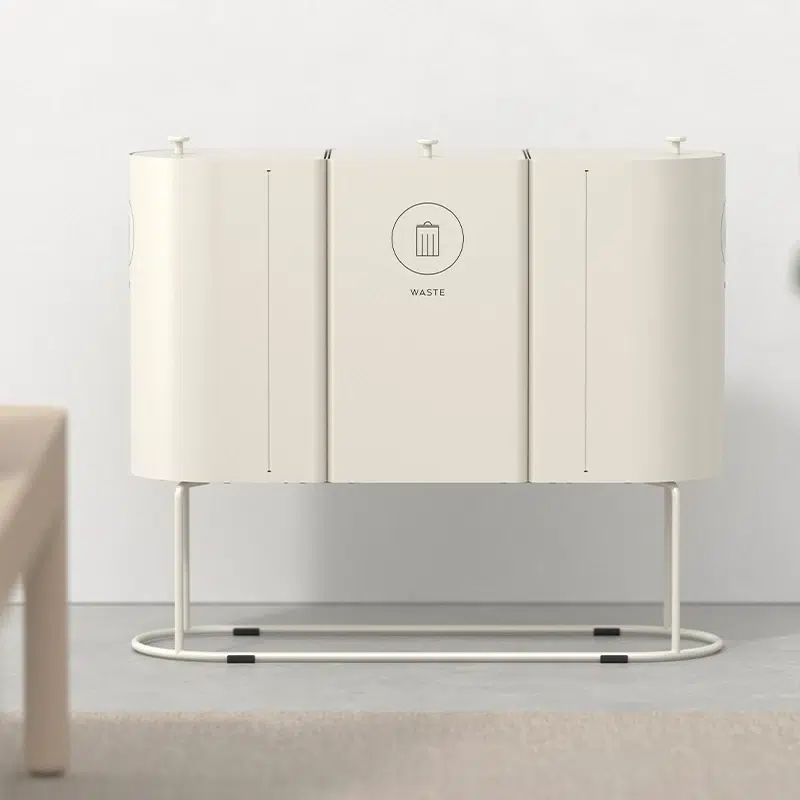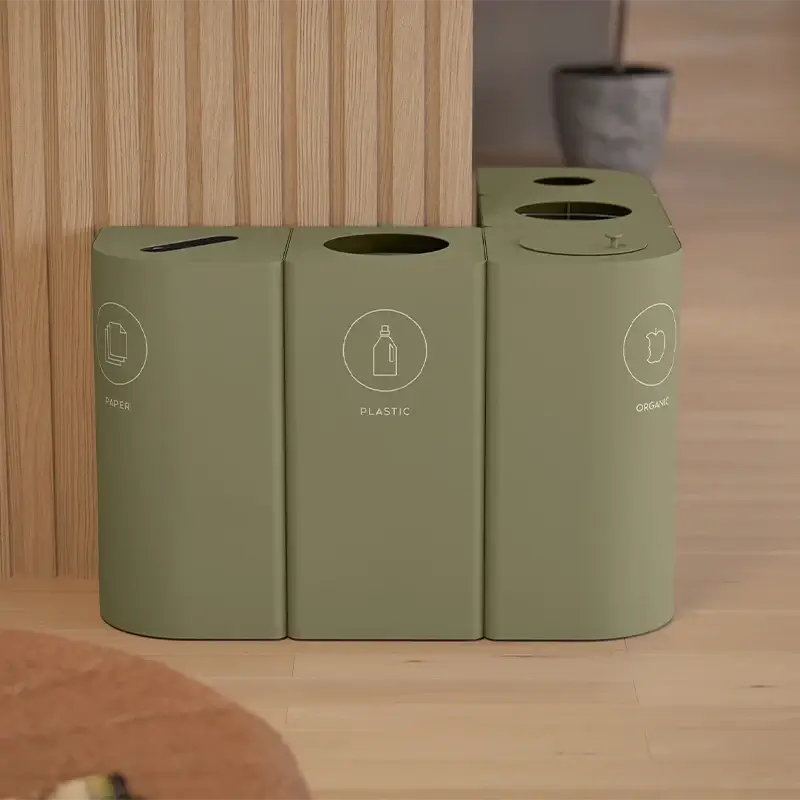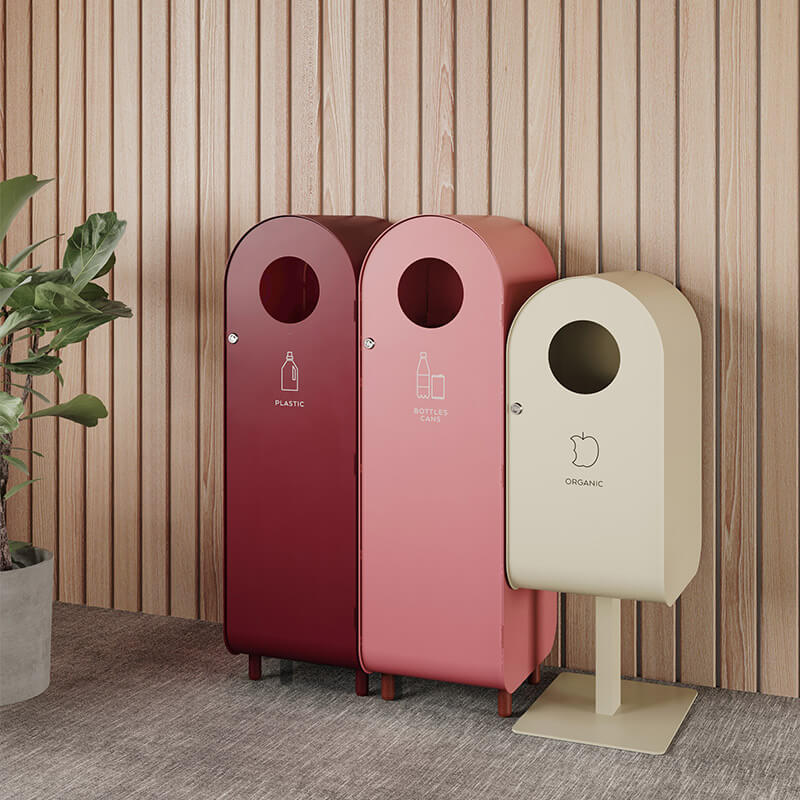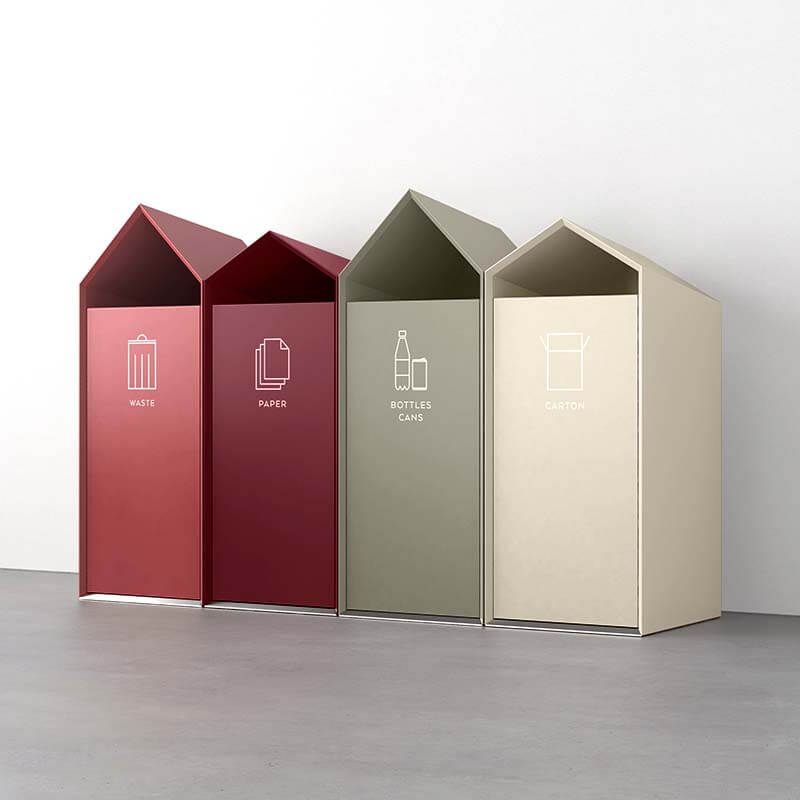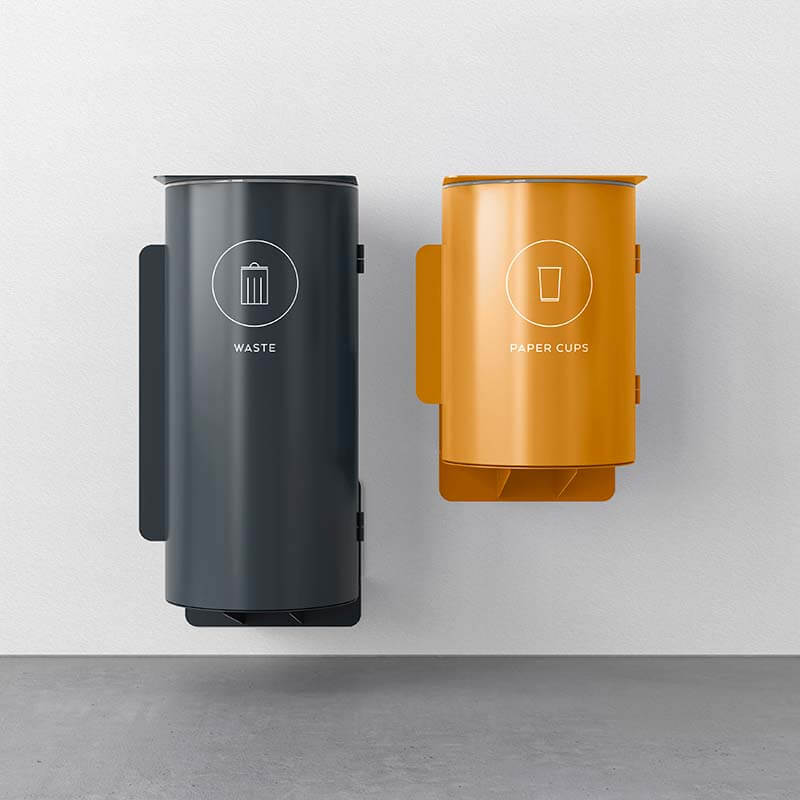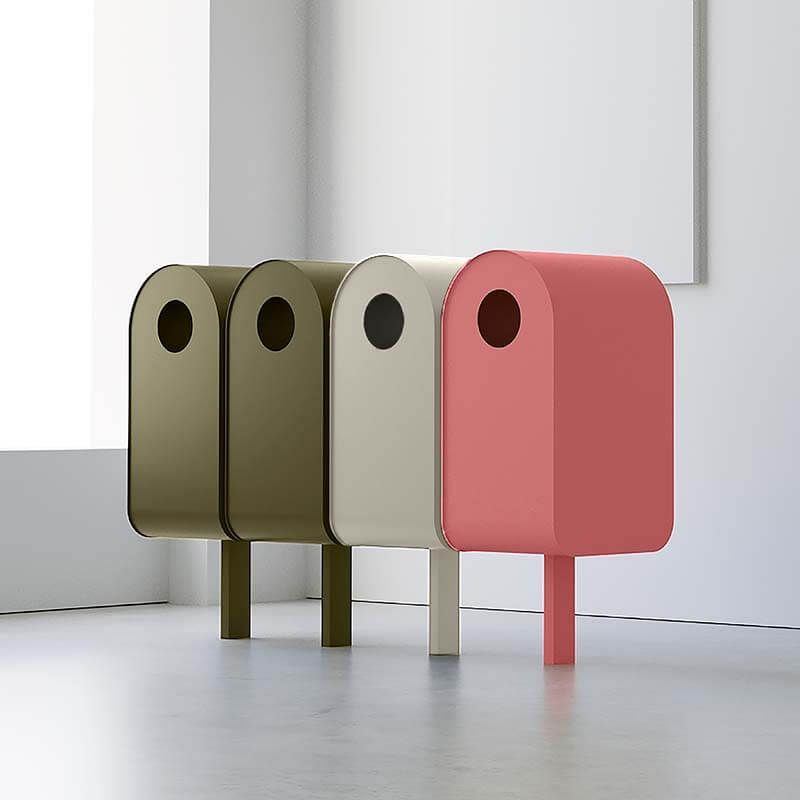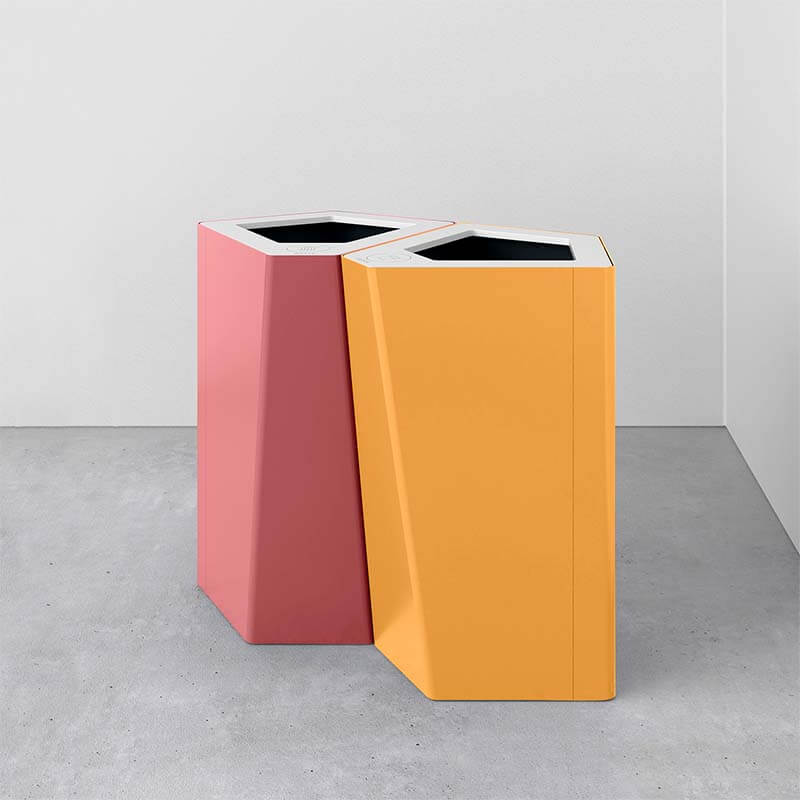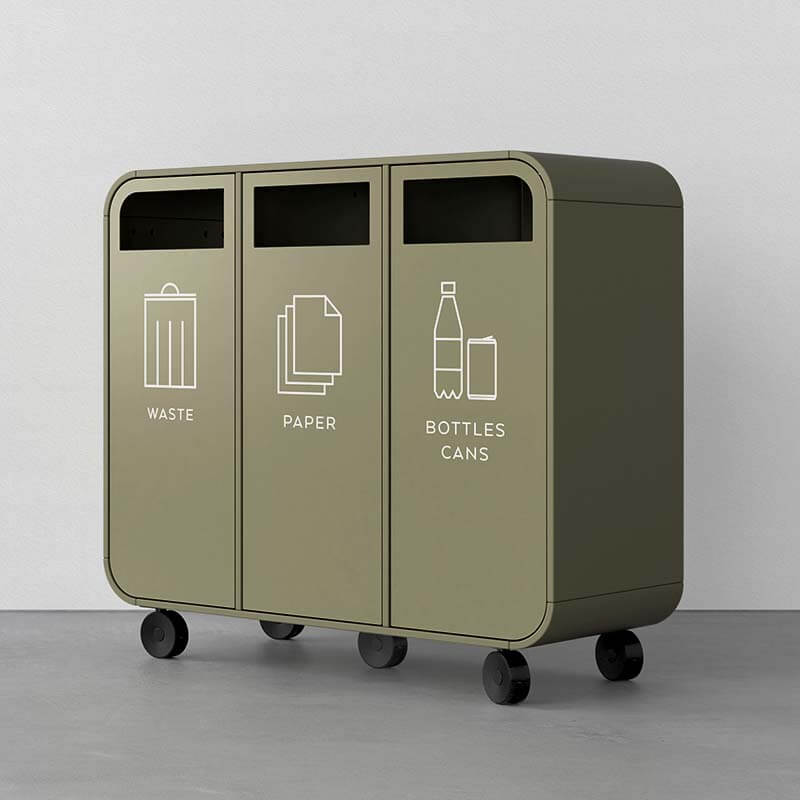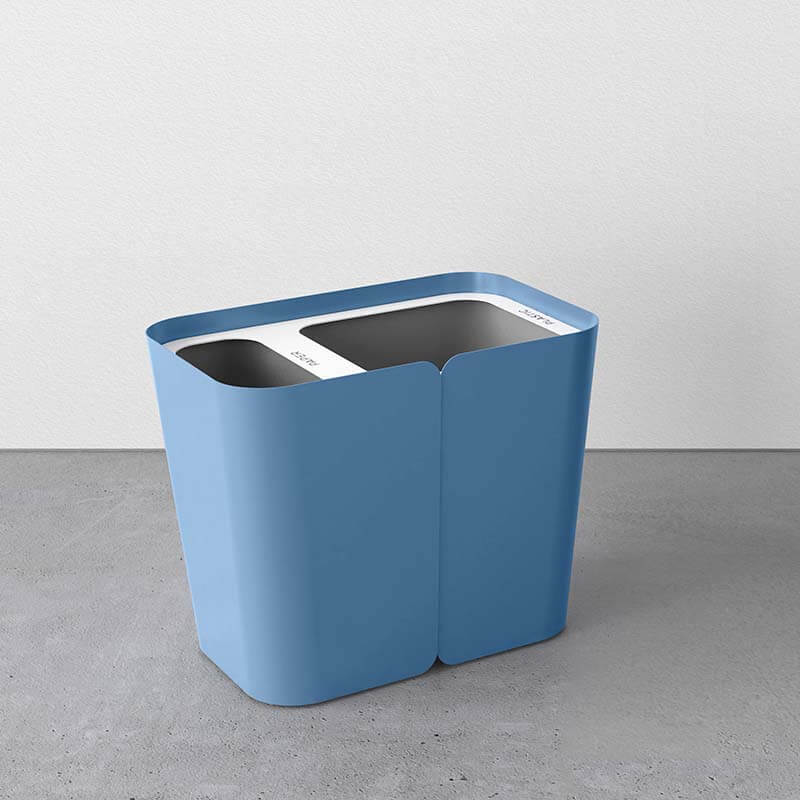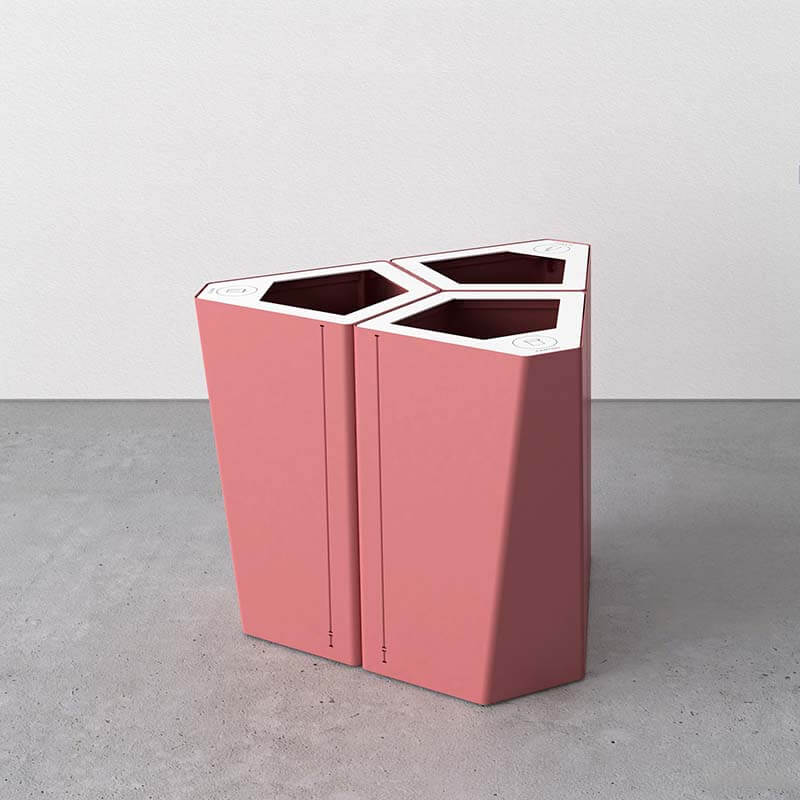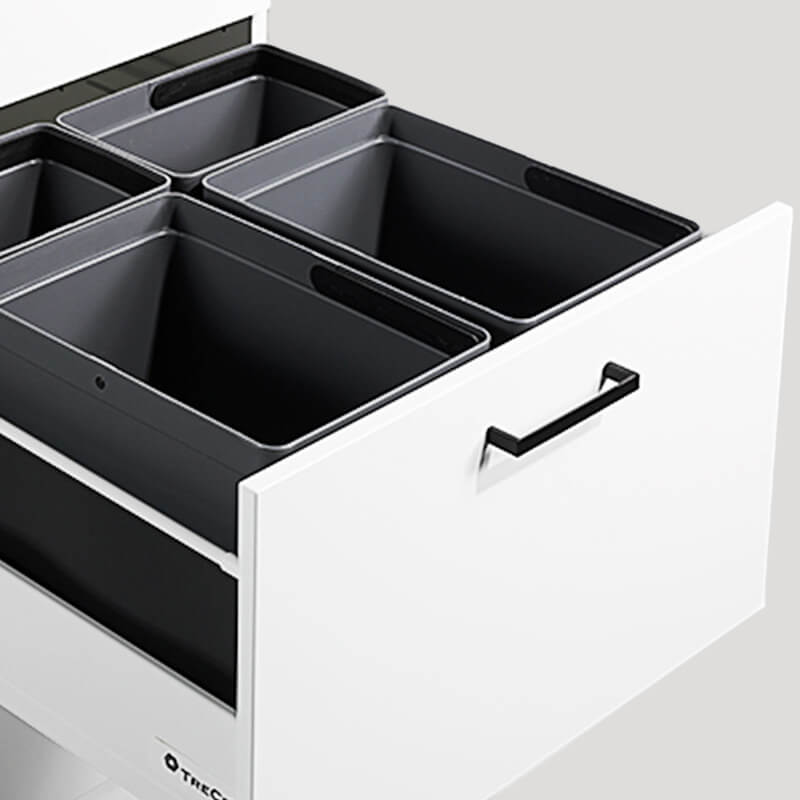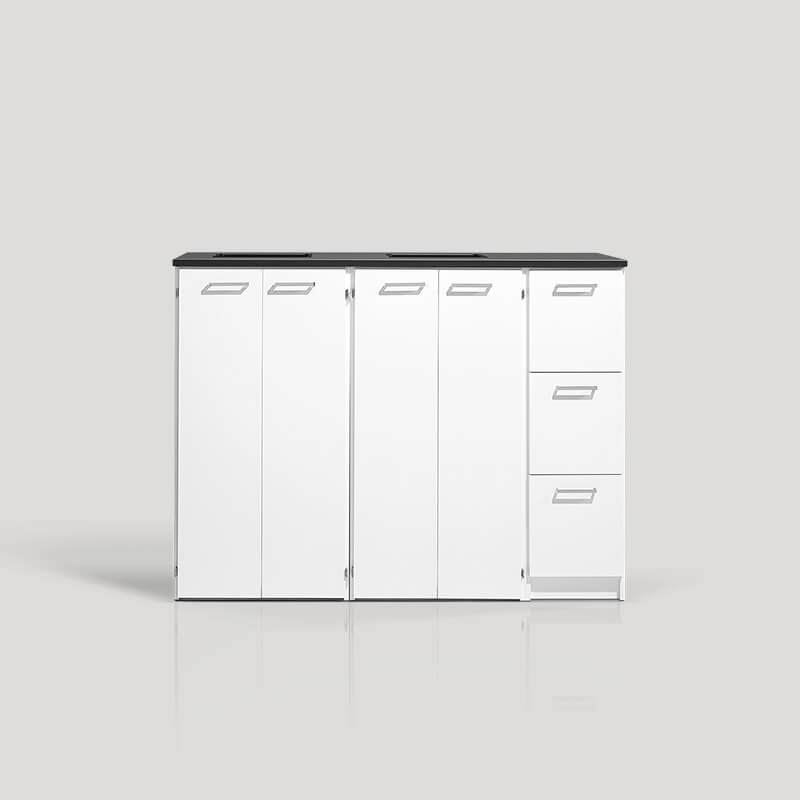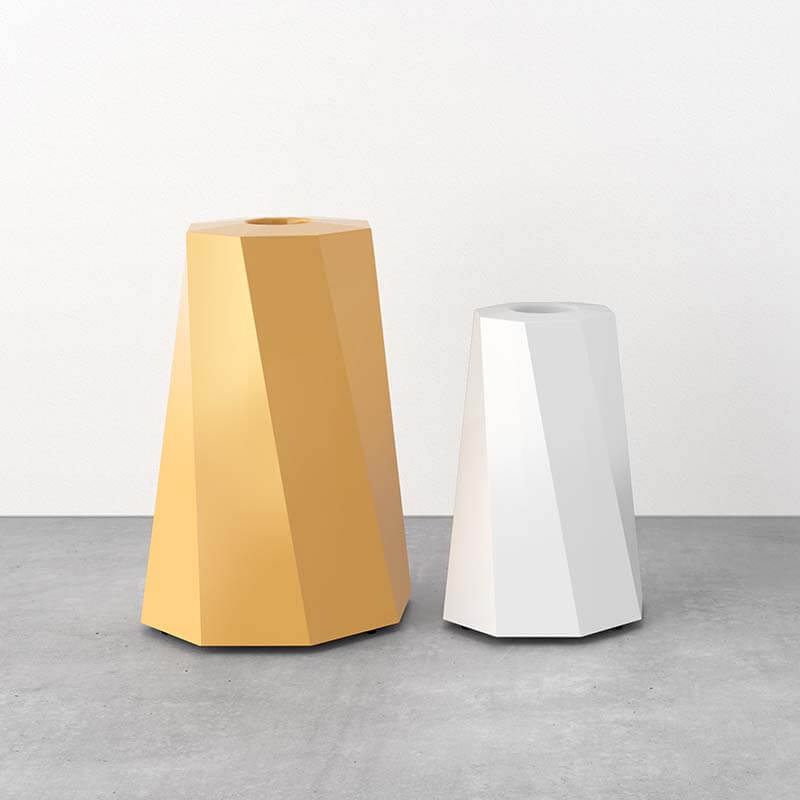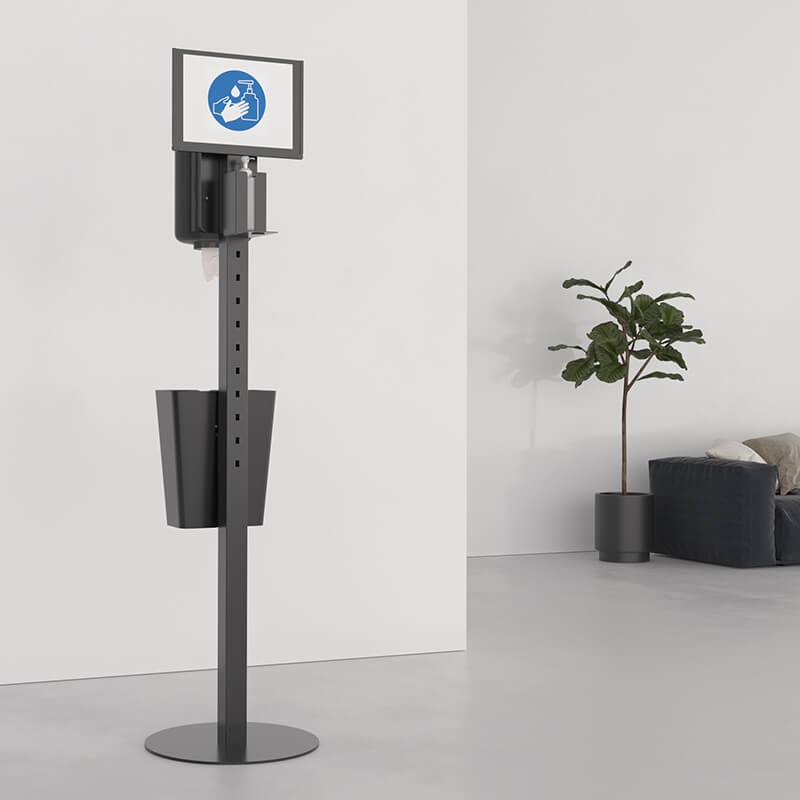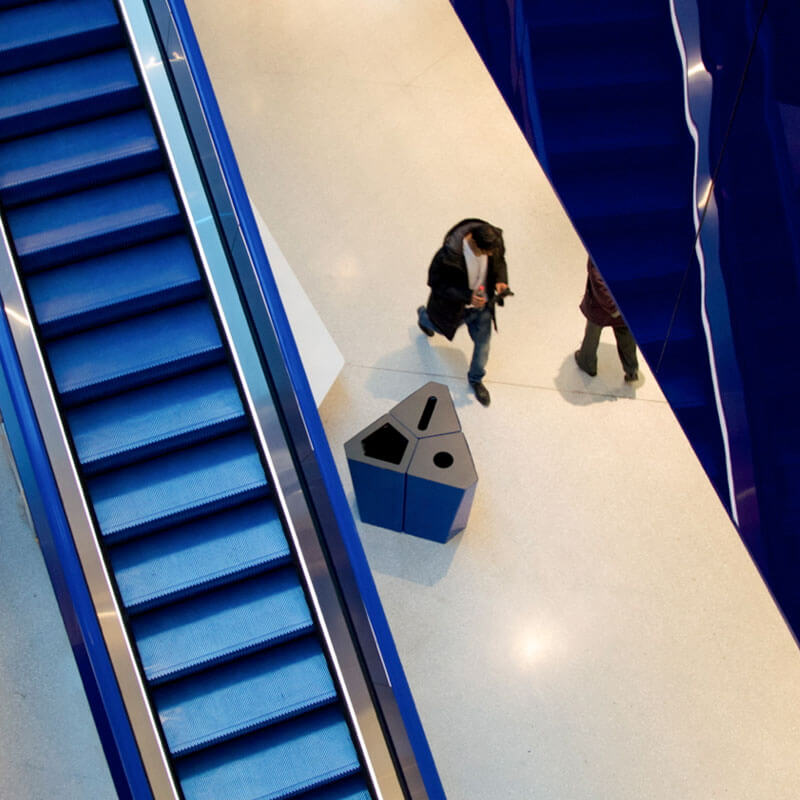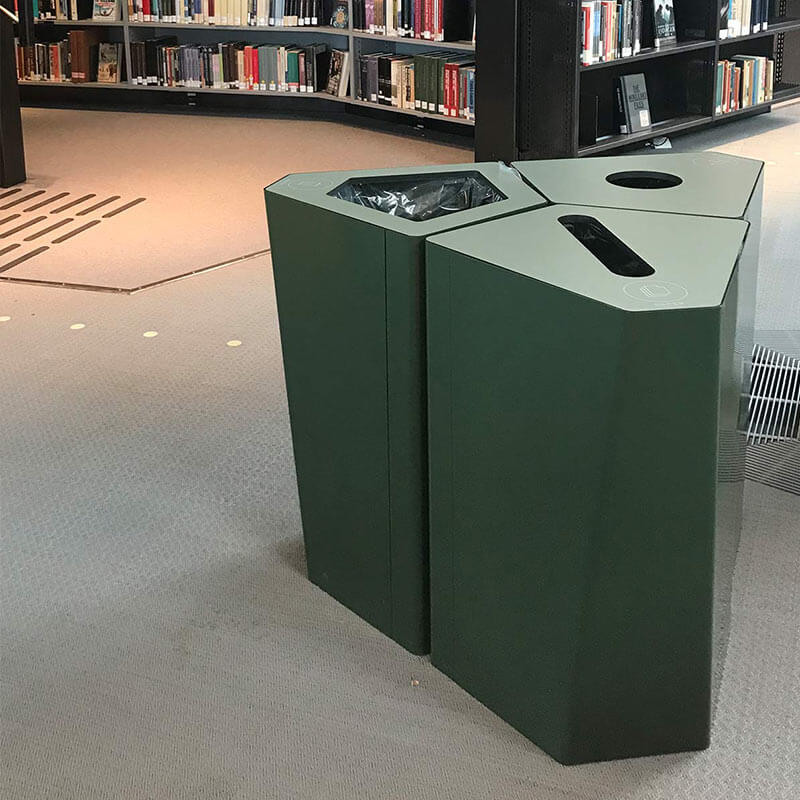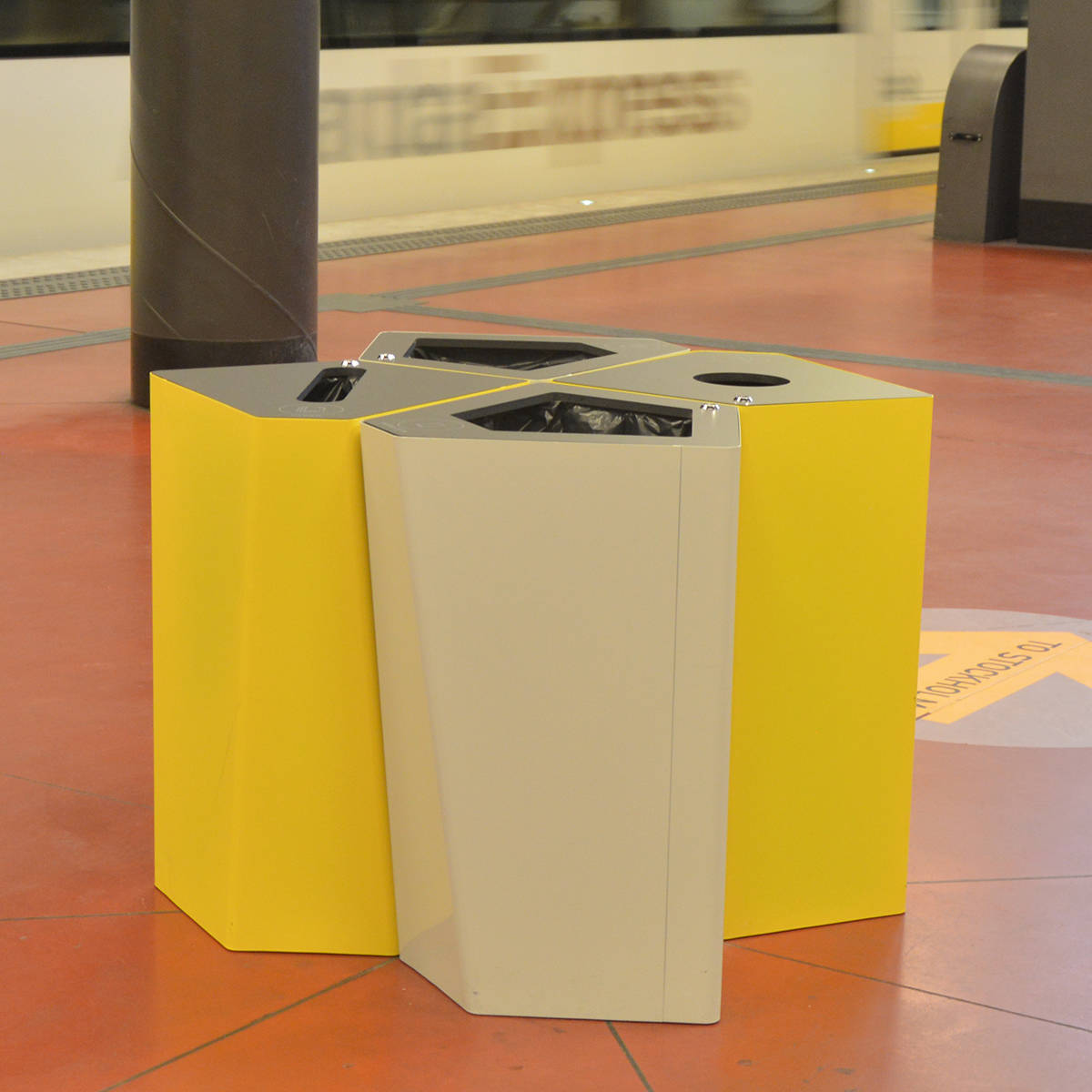Waste recycling in public spaces: creating cleaner and sustainable communities
Waste recycling is an important practice to promote cleaner and more sustainable public environments. By actively participating in source separation, we can reduce the amount of waste going to landfills and instead recycle and reuse materials in a more sustainable way. This simple act helps preserve our precious natural resources, reduces environmental impact, and promotes a greener future for all.
Recycling, Etage
22-160 liter, golv

KLOSS Mini, recycling
11-13 liters, floor + wall
![]()
KLOSS Small, recycling
32-25 liters, floor + wall
![]()
KLOSS, recycling
65-68 liters, floor + wall
![]()
Waste bin, Hightower
125 liters, floor
![]()
Recycling, Ridge
140 + 160 liters, floor
![]()
Recycling, Birdie
63 + 43 liters, wall + floor
![]()
Waste bin, Popsicle
57 liters, floor
![]()
Waste bin, Kite
70 liters, floor
![]()
Recycling, Cloud
85–125 liter, floor

![]()
Waste bin, Hold
23 liters, wall + floor
![]()
Waste bin, Kite mini
10 liters, wall + floor
![]()
Recycling unit
CombiLine, multiple options

Recycling station
Combiline, complete
combinations

Waste bin, Butler
46 + 116 liters, floor

Reference projects
We constantly deliver to companies with high demands on functional storage solutions. Storage with great flexibility that can be easily adapted depending on the need. Most of our furniture is tested and approved according to Möbelfakta. Quality is important to us and we are happy to share our knowledge of how to create the best possible storage solution. Proof of this is satisfied customers who return to us and supplement or re-order storage furniture from our wide product range.
Waste recycling systems are key to reducing waste
Public spaces, such as parks, squares, schools, and event venues, generate significant amounts of waste every day. By implementing effective source separation systems, we can manage and reduce this waste effectively. By providing clear and accessible containers for different types of waste, we empower citizens to actively participate in sustainability initiatives and learn about the importance of reducing recycling, and reusing materials.
There are several public environments where source separation can be particularly effective. For example, in airports, malls, libraries, car parks and stairwells, recycling systems can be encouraged and effective. By providing separate containers for paper, plastic, glass, and metal, we make it easier for people to sort their waste correctly. Clear labelling and signage also play an important role in informing and guiding users on which materials to place in each container.
From 1 January 2026, municipalities will require the separate collection of ordinary packaging waste in places larger than 2,000 square metres where there are significant amounts of packaging waste. Plastic packaging waste should also be collected separately in other outdoor locations with significant quantities, such as pedestrianised streets. Organisers of public outdoor events are also responsible for ensuring that visitors can sort and dispose of packaging waste. New improved rules on packaging collection
Protecting the environment with waste recycling
The benefits of implementing waste recycling in public spaces are numerous. By reducing the amount of waste going to landfills, we can help preserve our natural resources and protect the environment. It also creates a cleaner and more attractive environment for citizens and visitors. By demonstrating their commitment to sustainability, public institutions and places can also inspire citizens to take similar action in their own homes and communities. Together, we can make a difference and contribute to a greener future for generations to come.
Education and participation lead to a sustainable future
Education and awareness are key to the success of source separation in public spaces. By informing citizens and visitors about the importance of source separation and how to properly sort waste, we can increase participation and engagement. Educational campaigns, information materials and events can spread knowledge and inspire people to actively participate in the waste sorting process. By creating a culture of sustainability and awareness, we can work together towards a cleaner and more sustainable future.
By implementing source separation in public spaces, we create cleaner, more sustainable, and more conscious communities. Every individual who engages in recycling plays an important role in making a difference and contributing to a greener future for generations to come. So, let's take the plunge and work together to create a cleaner and more sustainable world.

